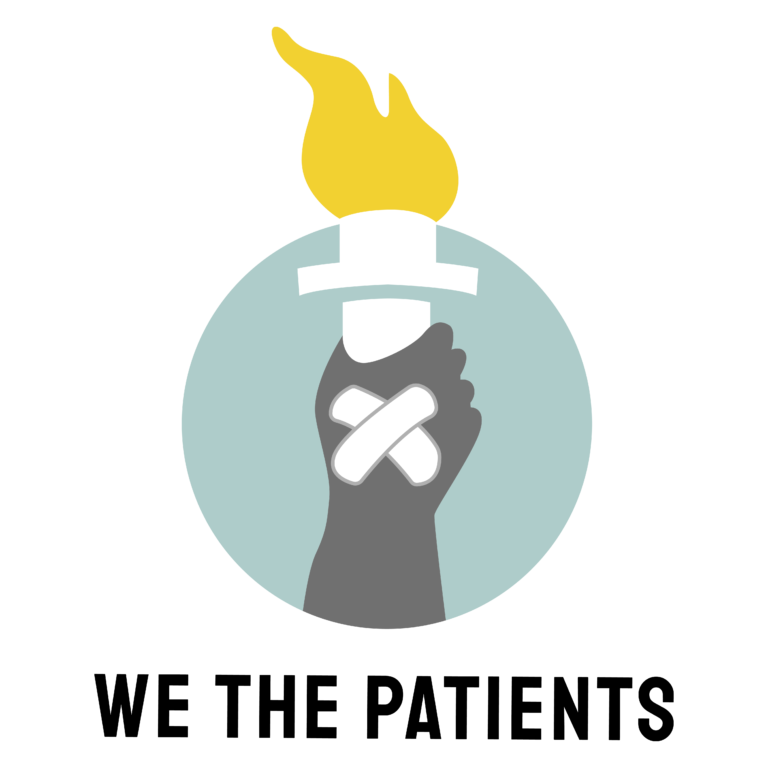If getting access to fair and safe healthcare is a fight, Ilene Corina is the kind of person you want in your corner.
Corina is a Patient Safety Educator and Advocate, she is the President of the Pulse Center for Patient Safety, Education & Advocacy. Nearly 20 years old, Pulse CPSEA is the Long Island-born, grassroots platform Corina built to teach patients how to protect and advocate for themselves in a medical system where simple error is the third leading cause of death nationwide.
Like many who turn to advocacy, Corina faced personal tragedy of her own.
Corina lost a son after multiple misdiagnoses from multiple doctors, lead to his untimely death. But where some find bitter solace in anger, Corina needed action. And her action turned into a resource for anyone looking for help navigating the healthcare system and uncertain of how to advocate for themselves or someone they love. With the assistance of medical professionals and experts within the healthcare community, Pulse CPSEA runs regular Family Centered Patient Advocacy Training classes to teach civilians (i.e. non-medical professionals) how to best represent the needs of a patient in terms of things like HIPAA, medication needs and potential conflicts, treatment preferences, advanced directives, etc. Pulse is even ahead of the sociological curb, tackling issues of institutional bias head-on with their Healthcare Equality Project. The website alone has plenty of resources —maybe most vitally the “One Is a Number” site, which collects studies and the latest findings on medical error research.
Now more about Ilene Corina…
We The Patients: You didn’t start as a professional in healthcare or advocacy. How did you get here? I understand there’s a serious personal connection for you?
Ilene Corina: Yes. My son needed surgery and I couldn’t find any info about doctors’ backgrounds. This was in the mid-90s. I found there was legislation pending in New York State for mandatory physician profiles. To get the legislation passed, I had to start talking to the public, asking questions like “What do you know about your doctor? How do you look for a doctor? What’s important to you in a doctor?”
The reason this legislation was so important to me then was because my first son, a few years earlier, had died from a tonsillectomy. He was bleeding [internally] for eight days. We saw five different doctors in the hospital, all of whom said “He’s fine, don’t worry about it.” Eight days later, he died. Now I was back in that situation; another son needed surgery. And I realized nobody seemed to care. Nobody wanted to hear about what could have been done different. That’s when I said ‘This is not OK. We need to be talking about this.”
WTP: A lot of people today are experiencing similar frustrations and pain. How did you go from pain to action?
IC: I started support groups in 1996 at my church in Freeport. Once a month, on Sundays, people would come from all over to talk about their experiences. That went on for a few years. We built up a coalition. I realized over time that many people don’t want to be activists; they were just angry. And I realized there’s a place for them, too. But we needed a place for those of us who said “We have to do something about this.”
WTP: One primary way your organization does that is through Family-Centered Patient Advocacy Training Programs—beginner programs for friends and family, patients themselves, all to outfit us to face the healthcare system and avoid future medical error. What does a class involve? Does it teach you to find an advocate? To become one?
IC: What we’re doing is activating already-present communities to advocate for themselves in a hospital setting. If somebody is going in for surgery, or going into the hospital, our focus is “Who are your friends and family?” Who’s going to be there visiting?” You might already have your advocate, and you don’t even realize it. We tell people to bring somebody to the hospital.
WTP: Here’s an important question for a lot of us—what if someone doesn’t have a community or an available advocate?
IC: One thing I would do is ask them about their neighbors, a church group, their work, etc. If they have one person from each of these groups, I can connect them. They can become a support system of sorts. People might want to help them. But if they’re alone, we’ll advise a few things. I’ll say be respectful, first. Be sensitive to staff. Don’t go over someone’s head right away. And have your stuff close by. We encourage plastic bags in bed, with all your stuff in it, because tables get pushed aside and everything disappears. Use a plastic Ziploc, put your phone, comb, everything in it. Learn how to do things in question form: for instance if you feel you’re not getting your medication, say something like “I thought I was supposed to get this medication?” And get a list of your medications. They’ll print it. If you do have family or friends there with you, they should never say they need the info; the patient needs the info. Because of HIPAA laws. But that’s a whole other controversial thing.
WTP: To be honest a lot of this sounds like a major breakdown in communication. Is it because staff are overworked? Are hospitals understaffed?
IC: You’ll hear across the board that there are staffing issues. It’s a big problem. In some cases, it’s a simple shortage; on others, it’s a lack of quality. But the result is misdiagnosis, and people die every year.
WTP: That’s so frustrating. Is there anything we can do on our end, arm ourselves with, in terms of bringing in our own information?
IC: We do something called STARS. It’s part of our Healthcare Equality Project. It’s an acronym to make sure you can communicate your symptoms. For instance, someone with Lupus—they’re often misdiagnosed with fatigue and other issues. Okay, so then it’s “What are you telling the doctor is the problem?” They’ll say “I’m exhausted and everything hurts.” That doesn’t work. The doctor just worked a 20-hour day. What makes you different? The STARS program has you go in with this card: you write S, your symptoms, when it started happening; T is treatment you’ve been given so far; A for associated symptoms; R what relieves or provokes them; S for severity.
WTP: What about Googling symptoms? Should we stop? There does seem to be some available, sometimes helpful info, but it also seems to annoy doctors and could encourage hypochondria or hysteria. Self-misdiagnosis, if you will.
IC: Yes, doctors don’t like when you come in and say “This is what I found on Google.” Well, too bad! We want patients to be able to say “I know that X number of people die from misdiagnosis each year. Let me save you the headache of misdiagnosing by doing some research by participating! I know my body!” We want to empower the public to not feel intimidated. Which is hard to do when you’re naked on a table.
WTP: Speaking of feeling intimidated, I know you also have some other initiatives going at Pulse CPSEA, including the Healthcare Equality Project for at-risk communities—“ethnic and racial minorities”—who face an institutional bias in the struggle for fair and safe healthcare. Are there any other programs We The Patients readers would benefit from knowing about?
IC: We [work with] a program for the African American community, Ask for Your Life. Dr. Leslie Farrington, she’s a black OBGYN, she started this program as she retired. She travels with it, really empowering the black community, especially as research comes out about how problematic bias is in healthcare.
WTP: Can you expand on that, “problematic bias in healthcare”?
IC: I’m a white middle-class woman and I never had to feel like I would be treated differently. But people are treated poorly, based on race, based on gender. I’ve seen it. I was an advocate for transgender people; volunteers wouldn’t come into the room because they’re afraid of the people who were transgender. And that was acceptable in this hospital. And there are big studies where you read about medical students who believe black people have a higher pain tolerance. Somebody who’s black, a woman I know who ran a clinic, had had surgery and went into the emergency room of her own hospital clinic in jeans and a T-shirt and she was accused of being a drug-seeker. I don’t believe that ever would’ve happened to me.
WTP: It’s hard not to feel like this is all a little “David and Goliath.” Is it?
IC: I would say yes. But we have to care about it. It’s here. It’s in our face. The policies are made in the boardroom, not where the problems happen, at the bedside. We need to bring executives education.
Keep an eye on the Pulse CPSEA page for upcoming class dates for the Family Centered Patient Advocacy Training. Corina also periodically updates her Rants of a Patient Safety Advocate blog, which is a good place to read up on Corina and Pulse’s recent action steps and current issues. They also run a fairly active Facebook page. And of course, if you’re looking to get involved, help, advocacy, and financial support are always welcome.



